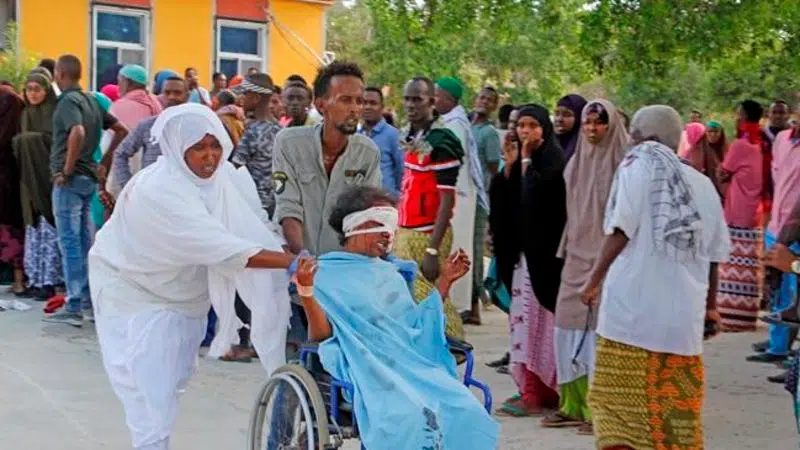
Somalia bombing kills dozens; airstrikes target militants
MOGADISHU, Somalia — A truck bomb exploded at a busy security checkpoint in Somalia’s capital Saturday morning, killing at least 78 people including many students, authorities said. It was the worst attack in Mogadishu since the devastating 2017 bombing that killed hundreds.
The explosion ripped through rush hour as Somalia returned to work after its weekend. At least 125 people were wounded, Aamin Ambulance service director Abdiqadir Abdulrahman said, and hundreds of Mogadishu residents donated blood in response to desperate appeals.
President Mohamed Abdullahi Mohamed condemned the attack as a “heinous act of terror” and blamed the local al-Shabab extremist group, which is linked to al-Qaida and whose reach has extended to deadly attacks on luxury malls and schools in neighbouring Kenya.
On Sunday, U.S. military officials said three airstrikes conducted against al-Shabaab militants in Somalia had killed four militants. The airstrikes came in co-ordination with the Somali government and, according to a U.S. military statement, targeted al-Shabaab militants responsible for “terrorist acts against innocent Somali citizens.”


